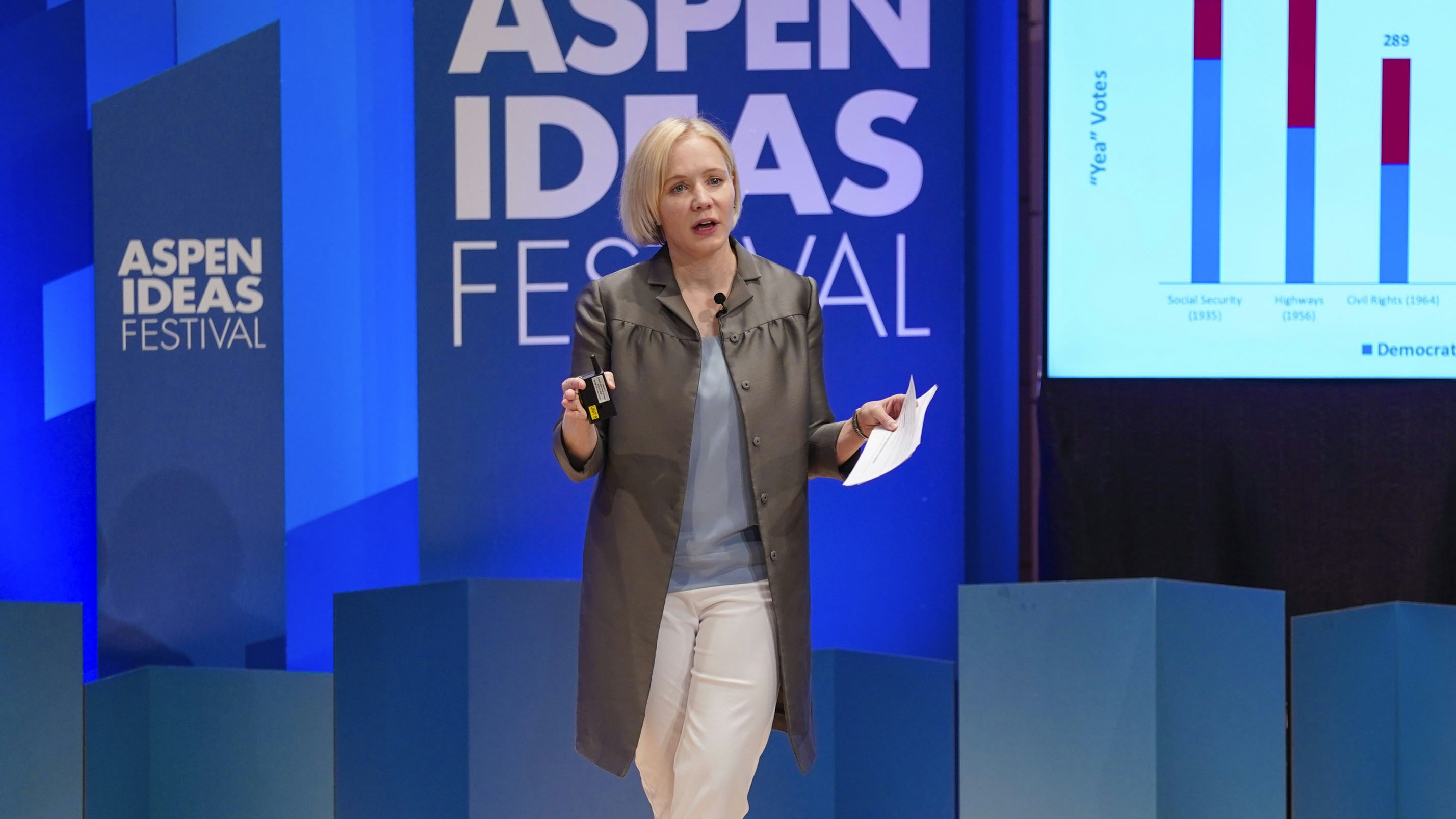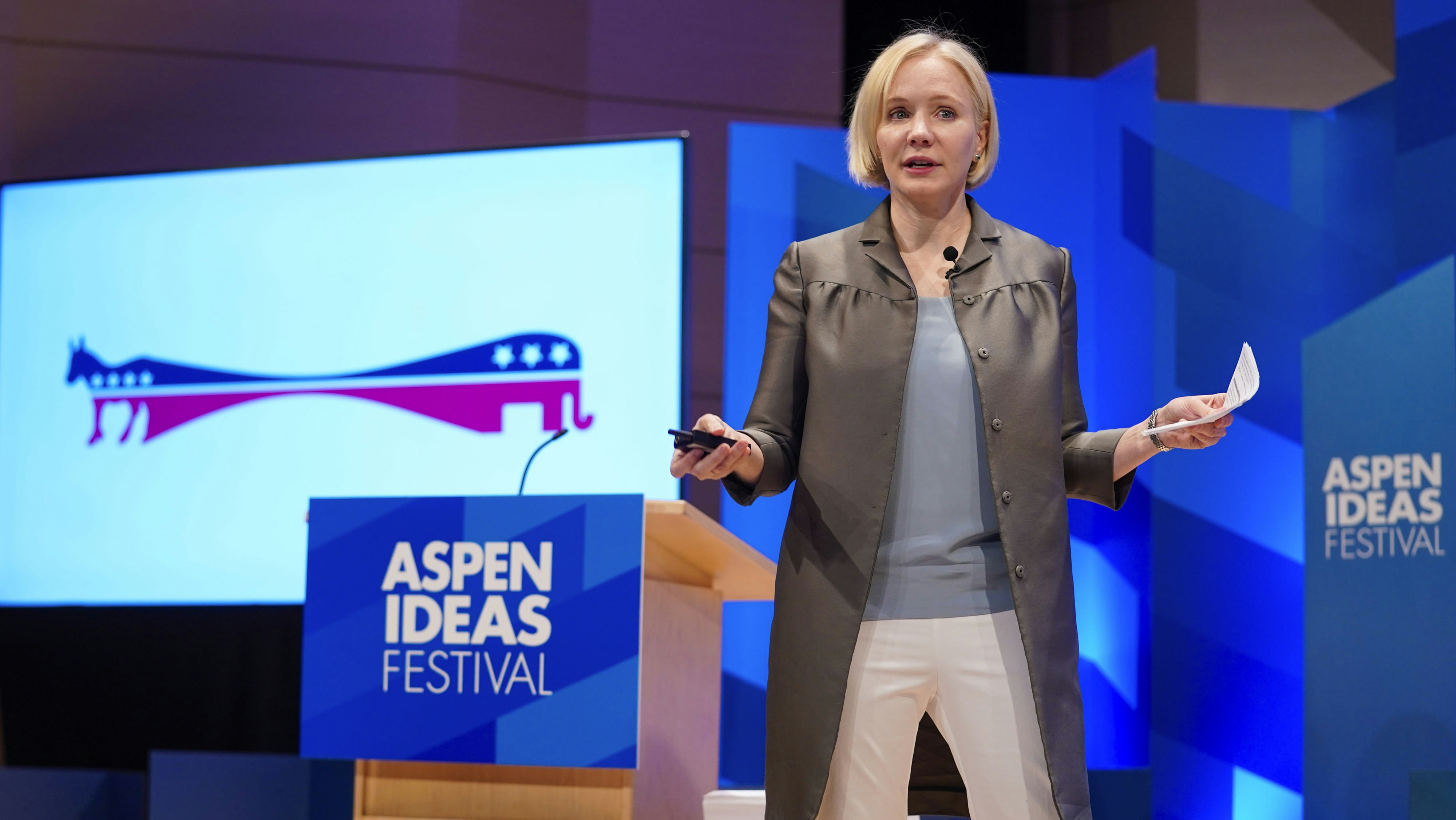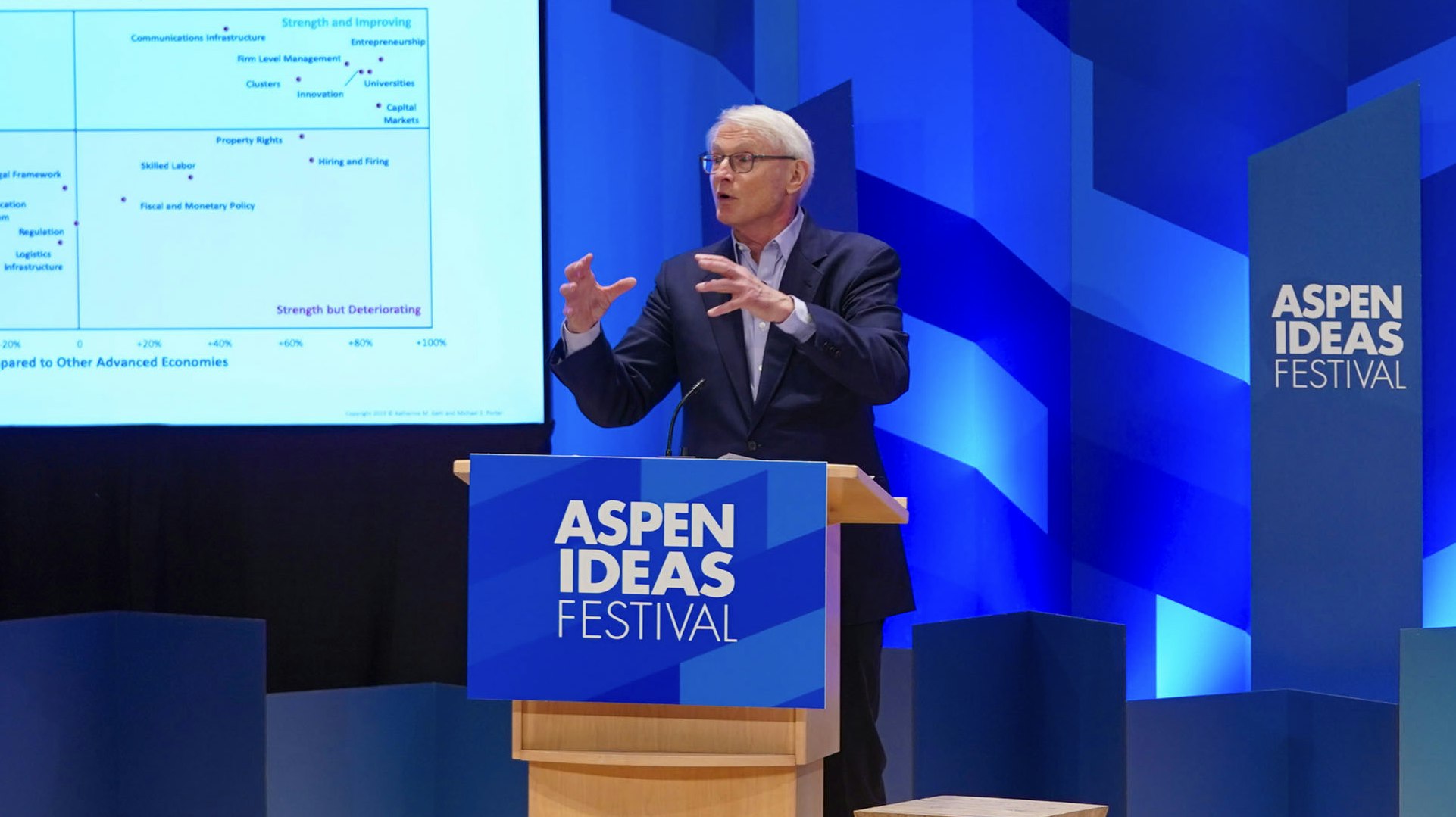
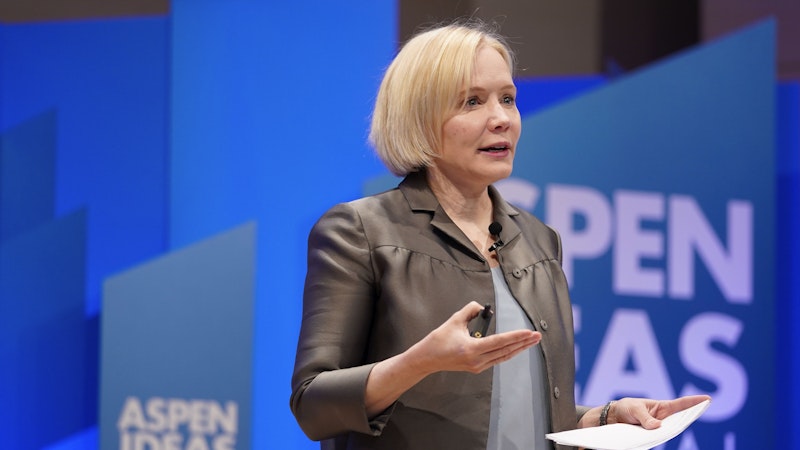
Can Political Innovation Break Partisan Gridlock and Save Our Democracy?
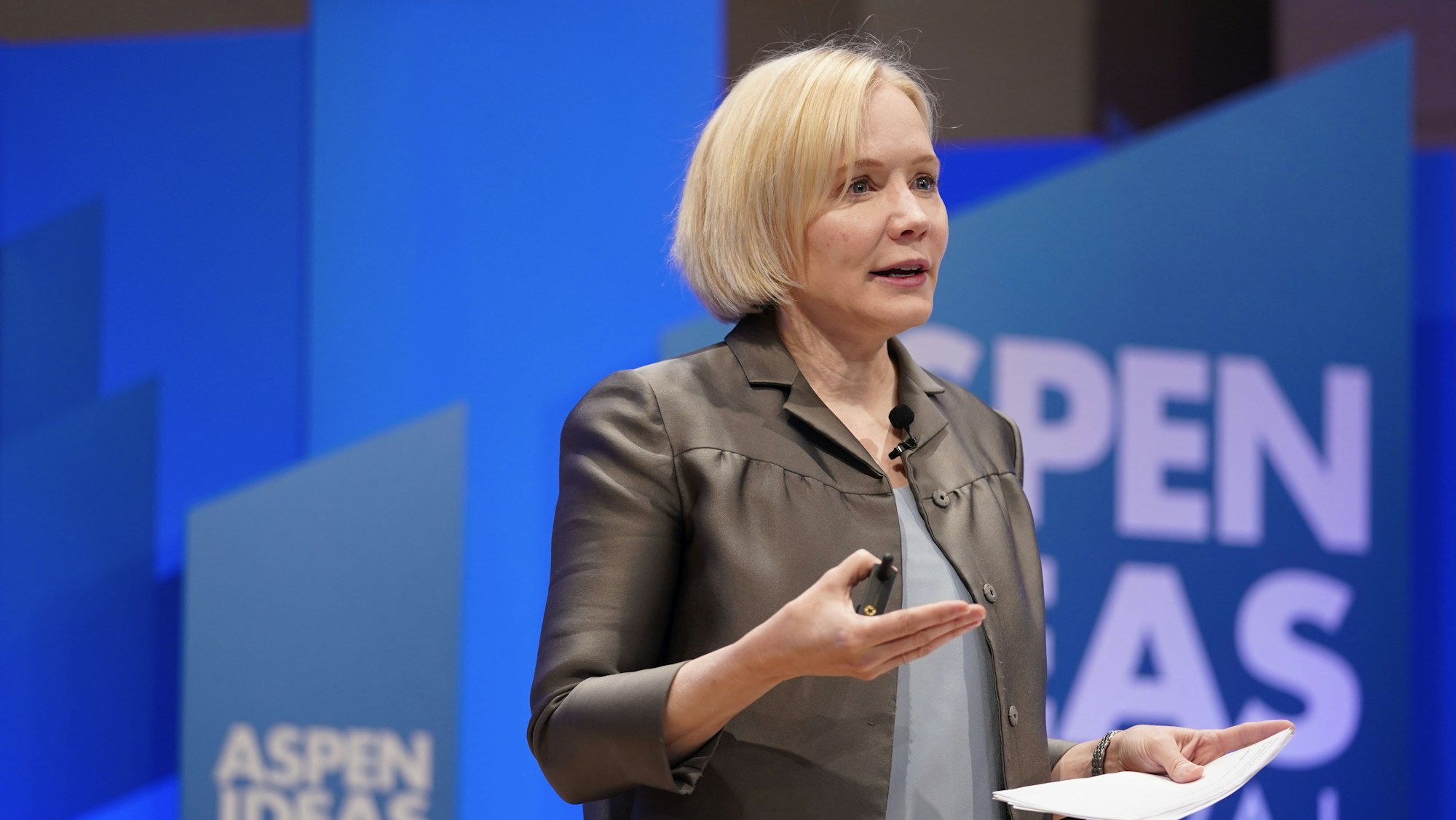
Politics is the only industry where we’re told less competition is good for the customer.
Setup
It seems paradoxical that the US, which touts itself as the bastion of democracy around the world, has a political system that, at the best of times, seems to jolt along in fits and bursts of efficacy. Katherine Gehl and Michael Porter wanted to understand why, and their research flips the script of the political system on its head.
- 2019 Festival
- USA
Politics isn’t broken, it’s just badly designed
The current US political system seems like a dysfunctional mess—if, on the rare occasion Congress manages to pass a consequential piece of legislation, it will almost assuredly be repealed when political control shifts from one of the two US political parties to another. But business leader Katherine Gehl wants you to understand the dysfunction isn’t because the system is broken. Gehl says the political system is actually operating exactly how it’s intended to:
So how can a political system be functioning properly yet deliver such dismal results for its citizens? The problem, according to Gehl, is that the needs of the US political system just don’t align with the needs of the country. The political system is designed to safeguard itself, not to champion the public interest.
Bad government is cutting us off at the knees
Economist and Harvard professor Michael Porter set out to understand why the US is struggling to maintain a high quality of life for its citizens and a robust economy, and the results were unequivocal: bad governance directly damages US social and economic progress. The ineffective US political system produces incoherent regulation, a restrictive tax code, and a substandard quality of life.
Whether it’s through rising infant mortality rates, difficult access to higher education, or subpar economic performance, Porter says the US and its citizens are being held back by the political-industrial complex. The US government is failing in its mandate, and it’s seemingly unable to reform itself in the necessary ways.
Power play: how a small minority controls US politics
Congressional primary elections are notoriously frequented by a small minority of highly partisan voters. Katherine Gehl explains how the primary system feeds the cycle of partisan gridlock in Congress:
When primaries are the only viable path to office in the US’ two-party system, that means eventual Congresspeople have to vote to fulfill the wishes of their primary voters or they risk losing their party’s nomination. And since Congresspeople also represent a political party whose main interest is self-preservation, these two factors combine to create an end result that doesn’t prioritize the public good.
What if we think of political parties as businesses?
It's time to stop thinking of our political system as a civic institution, says Michael Porter, and to start thinking of it as an industry. He explains how the two political parties operate as businesses, and the effects that has on citizens:
Is ranked choice voting the answer?
“The rules have been made to serve partisans, not to solve problems,” says Katherine Gehl. But the system that created our idiosyncratic rules also gives politicians the ability to change them. And that’s how political innovations like ranked choice voting can restore healthy competition in politics. Ranked choice voting, which is starting to be used by more and more states and municipalities, drastically undercuts the ability of the two major political parties to control elections.
How it works: ranked choice voting
Gehl argues that innovations that directly challenge the structure of our elections (like ranked choice voting) and our legislative process are the best hope we have. Some will take longer than others, and combating political entrenchment won’t be easy. But, says Gehl, our democracy depends on it.
Learn More
Additional Information
Resources
Why Competition in the Politics Industry Is Failing America—Katherine Gehl and Michael Porter
Explore More
USA


Many more Americans are struggling to survive and make ends meet than is typically portrayed in the media and public policy debates. And when poverty is depicted, harmful and...


America’s “second founding” came on the heels of the Civil War, when the architects of the 13th, 14th and 15th amendments thought long and hard about how to enshrine civil rig...


It’s been decades since the United States has updated its immigration policies in any sort of comprehensive way, and the problems and suffering at the southern border have per...


Whether they publicly tout it or not, U.S. technology companies play a powerful role in politics, cultural issues and the way we live. Founder and investor Peter Thiel is one...

The 2024 presidential election is only months away, and the past few weeks alone have brought shocking headlines that change the political ground we stand on — an attempted a...


Sizable electorates around the world are flocking to populist candidates who promise power, domination and a return to better times. The global experiment in liberalism seems...


The federal right to abortions in the United States has been overturned, access to contraception and IVF services are threatened in many states, and the gender wage gap persis...

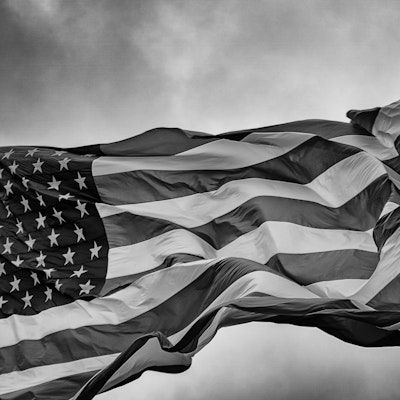
The Supreme Court has issued another series of controversial and consequential decisions this term, fueling discussion on the current state of the judicial branch. Recent poll...
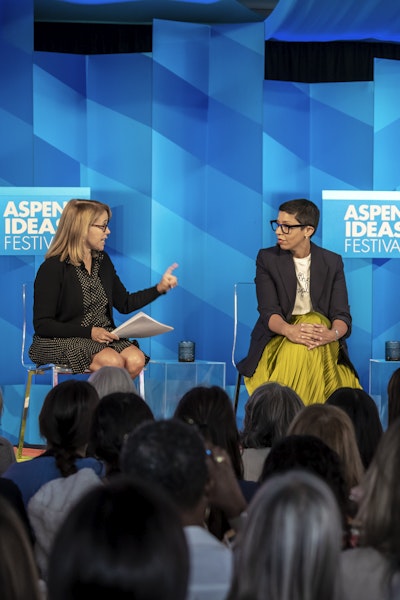
The rollback of reproductive rights, the push to end no-fault divorce, and gun laws that allow domestic abusers to own a firearm are turning the clock back on women’s rights....

Americans feel more polarized than ever, but two governors from opposite sides of the aisle have made it their mission to show otherwise.

Former Senators Bill Nelson and Kay Bailey Hutchison discuss the bipartisan work that defined their careers, suggest ways for today’s elected officials to find common ground,...
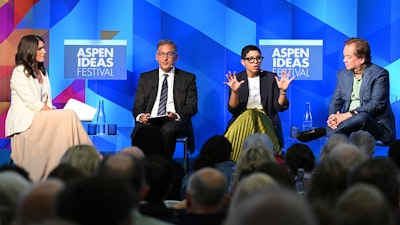
As the Supreme Court concludes another contentious term, it is once again reshaping the legal landscape. With cases on abortion, gun rights and social media — and potentially...

Two billion people worldwide are set to vote in elections this year, amid global conflict, societal mistrust, broken information ecosystems — and the truth-destroying disrupti...

Amid seismic shifts in the entertainment world, Oscar-, Golden Globe- and Emmy-winning Brian Grazer has managed to keep pivoting to new ways to tell stories in movies, TV and...

Images communicate truths, and also lies. Learning to pay attention to photographs can help us discern. An art and cultural historian and a visual artist host a master class o...

Peter Thiel has made no secret of his feelings about economic and cultural issues. Hear him discuss his vision for the future, his bets on AI and digital currencies, his thoug...

Hurray for the Riff Raff is more than Alynda Segarra’s musical moniker; they spent their youth hopping trains across America, capturing that life in youthful poetry then and a...
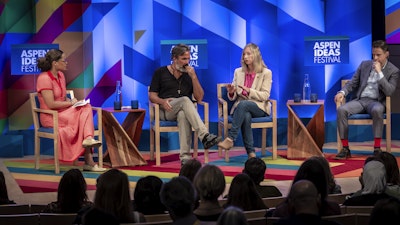
Firearms are one of the leading causes of death among children in the U.S., a country where there have been more than 150 mass shootings in the first five months of 2024. Sit...

Join our panel of expert analysts for a pre-debate conversation about how the 2024 election is shaping up. Stay for the debate watch party and refreshments, then hear the pane...

From climate change and mental health to hate crimes and chronic school absenteeism, no challenge is too big for young people’s community-changing solutions. Hear from teams o...








